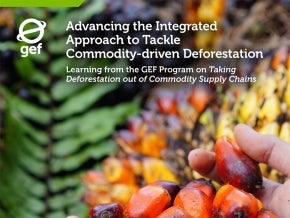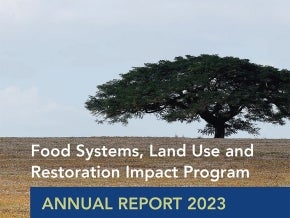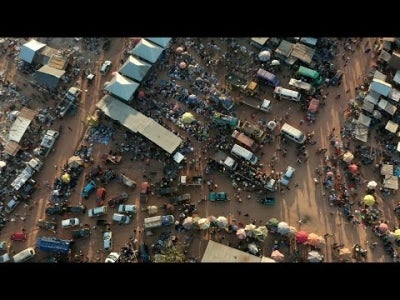The largest public fund for the world’s environmental challenges, the Global Environment Facility (GEF), has decided to amend its charter to affirm that it will be the primary financing mechanism of the United Nations Convention to Combat Desertification (UNCCD). The action was taken last week at the fourth GEF Assembly, the governing body of the GEF, in which representatives of all 181 member countries participate.
"This action taken by the Assembly to amend the GEF instrument affirms and strengthens the role GEF plays in delivering on the ground results for today's global environmental challenges, and sustainable land management is a key tool to protect food security, particularly among the world's most poor and vulnerable who always suffer the most from the ravages of climate change and species loss," said Mrs. Monique Barbut, CEO and Chairperson of the GEF.
“In our new funding cycle we expect to reach up to one billion family farms to help guard against soil erosion and preserve up to 500 million hectares of land,” she added.
“This is a landmark decision for the reasons cited by Mrs. Barbut,” added Mr. Luc Gnacadja, Executive Secretary of the UNCCD, in response to the announcement, “but it is more than that.”
“The global community stands at a significant moment in human history. We are waging survival wars on all fronts – political, economic, social and environmental. With so many challenges, world leaders are searching for solutions to deal effectively with these crises. This Treaty is the one instrument available to the global community, to meet many of these challenges,” Mr. Gnacadja said.
“The GEF’s decision is a vote of confidence in the Convention’s ability to deal, at once, with a mix of overwhelming global challenges that range from poverty alleviation, food insecurity, drought and water stress, to forced migration, mitigation and adaptation to climate change, deforestation and energy crises,” Mr. Gnacadja added.
The commitment signals to investors that the solutions the Convention offers and sustainable land management activities undertaken under its ambit are bankable.
Mrs. Barbut and Mr. Gnacadja noted that the decision is expected to induce considerable leverage investments, over the next four years, towards better land use practices in developing countries because short of addressing soil protection and land reclamation, policymakers face an uphill challenge for effective protection of land, water and air.
The GEF is an international financial instrument that funds the additional costs incurred by developing countries to fufill multilateral environmental agreements that generate global benefits.
Unlike its sister Rio Conventions, the UN Framework Convention on Climate Change and the Convention on Biological Diversity, and other more recent MEAs, the UNCCD at establishment was neither explicitly and formally linked to the GEF nor accorded its own instrument to finance commitment activities of the developing countries, leaving affected countries to depend on official development assistance.
In 2003, the GEF Assembly offered the UNCCD a facility by making land degradation a separate GEF focal area. The decision is the culmination of that long process and makes it mandatory for the GEF to fund activities to combat desertification. The Assembly meets every three to four years and is responsible for reviewing and evaluating the GEF’s general policies.


